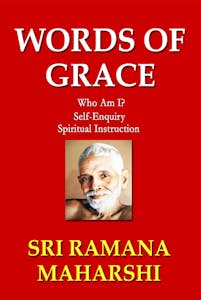EVERY living being longs always to be happy, untainted by sorrow; and everyone has the greatest love for himself, which is solely due to the fact that happiness is his real nature. Hence, in order to realise that inherent and untainted happiness, which indeed he daily experiences when the mind is subdued in deep sleep, it is essential that he should know himself. For obtaining such knowledge the enquiry, ‘Who am I?’ in quest of the Self is the best means. ‘WHO AM I?’ I am not this physical body, nor am I the five organs1 of sense perception; I am not the five organs of external activity2, nor am I the five vital forces,3 nor am I even the thinking mind. Neither am I that unconscious state of nescience which retains merely the subtle vasanas (latencies of the mind), while being free from the functional activity of the sense-organs and the mind, and being unaware of the existence of the objects of sense-perception. Therefore, summarily rejecting all the above-mentioned physical adjuncts and their functions, saying ‘I am not this: no, nor am I this, nor this’ — that which then remains separate and alone by itself, that pure Awareness is what I am. This Awareness self is by its very nature Sat-Chit-Ananda, (Being-Consciousness- Bliss). If the mind, which is the instrument of knowledge and is the basis of all activity, subsides, the perception of the world as an objective reality ceases. Unless the illusory perception of the serpent in the rope ceases, the rope on which the illusion is formed is not perceived as such.4 Similarly, unless the illusory nature of the perception of the world as an objective reality ceases, the vision of the true nature of the Self, on which the illusion is formed, is not obtained.
